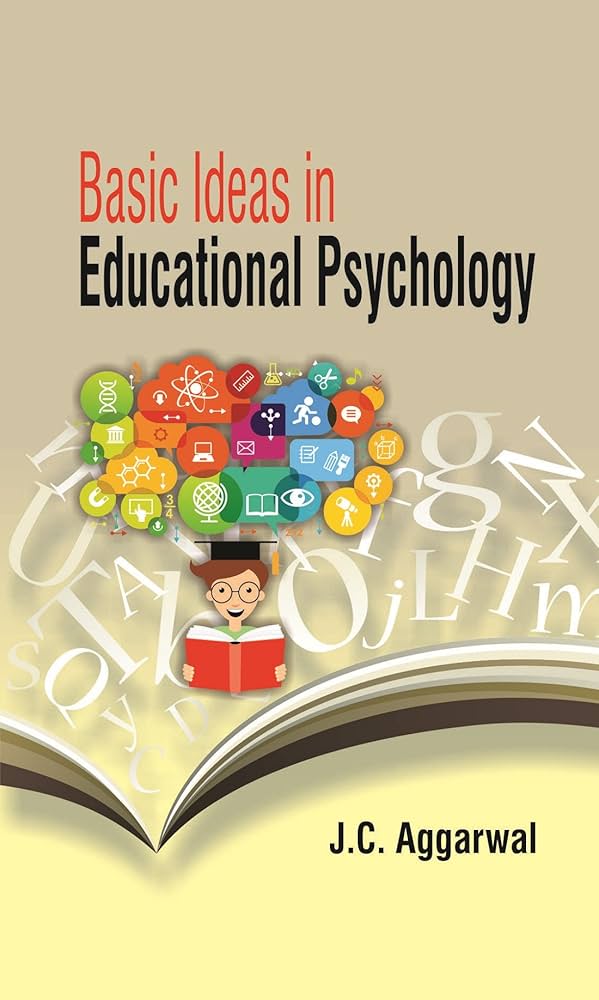Unveiling Minds: A Comprehensive Guide to Educational Psychology
Introduction
Educational psychology is a multifaceted field that bridges psychology and education, focusing on understanding how students learn, develop, and thrive in educational settings. This discipline encompasses various theories, research methods, and applications that inform educational practices. This guide aims to unravel the complexities of educational psychology, exploring its foundational theories, key concepts, and implications for teaching and learning.

The Foundations of Educational Psychology
Educational psychology draws upon several psychological theories to explain learning processes. Among the most influential theories are:
- Behaviorism: Pioneered by psychologists like B.F. Skinner and John Watson, behaviorism emphasizes observable behaviors and the ways they can be conditioned. In an educational context, behaviorist principles manifest through reinforcement and punishment. Teachers often use rewards to encourage positive behaviors and learning outcomes.
- Cognitive Development: Jean Piaget’s theory of cognitive development posits that children progress through distinct stages of cognitive growth. According to Piaget, understanding how students think at different developmental stages is crucial for effective teaching. For instance, younger students may struggle with abstract concepts, requiring concrete examples to facilitate comprehension.
- Social Learning Theory: Albert Bandura’s social learning theory highlights the importance of observational learning and modeling. This theory suggests that students learn not only through direct instruction but also by observing others. Teachers can harness this by demonstrating desired behaviors and fostering a collaborative learning environment where students can learn from one another.
- Constructivism: Constructivist theories, influenced by Piaget and Vygotsky, emphasize that learners actively construct their understanding of the world through experiences. Vygotsky introduced the concept of the Zone of Proximal Development (ZPD), suggesting that learners can achieve more with guidance than they can independently. This principle underlines the importance of scaffolding in education, where teachers provide support to help students reach higher levels of understanding.

Key Concepts in Educational Psychology
- Learning Styles: The concept of learning styles—different ways individuals prefer to learn—has gained popularity in educational discourse. While some educators argue that recognizing learning styles can enhance teaching effectiveness, research indicates that there is limited evidence supporting the idea that tailoring instruction to individual learning styles significantly improves learning outcomes.
- Motivation: Understanding what motivates students is critical in educational psychology. Theories of motivation, such as self-determination theory and goal orientation theory, explore intrinsic and extrinsic motivation. Educators can foster intrinsic motivation by creating engaging learning experiences, promoting autonomy, and connecting the curriculum to students’ interests and goals.
- Emotional Intelligence: Emotional intelligence (EI) plays a significant role in educational psychology, as it influences how students manage emotions and interact with peers. Educators who prioritize social-emotional learning (SEL) cultivate an environment where students develop EI skills, enhancing their academic performance and interpersonal relationships.
- Diversity and Inclusion: Educational psychology recognizes the importance of diversity in learning. Students come from varied backgrounds, each bringing unique perspectives and experiences. Culturally responsive teaching emphasizes the need for educators to acknowledge and respect students’ diverse backgrounds to create an inclusive learning environment that promotes equity and success for all learners.
Applications of Educational Psychology in the Classroom
- Curriculum Design: Educational psychologists contribute to developing curricula that align with cognitive and developmental theories. Understanding how students learn allows educators to design engaging and effective learning experiences that cater to different learning needs and preferences.
- Assessment and Evaluation: Assessment is a vital component of the educational process. Educational psychology provides insights into effective assessment practices that go beyond traditional testing methods. Formative assessments, such as observations and feedback, allow educators to gauge student understanding and adjust instruction accordingly.
- Classroom Management: Effective classroom management is crucial for creating a conducive learning environment. Educational psychology offers strategies for managing student behavior, such as setting clear expectations, establishing routines, and promoting positive relationships. Understanding the psychological principles behind behavior can help educators address challenges more effectively.
- Intervention Strategies: Students with learning difficulties or behavioral challenges require targeted interventions. Educational psychologists assess and design intervention strategies tailored to individual needs, helping students overcome obstacles and achieve their full potential. These interventions may include specialized instruction, tutoring, or counseling.
The Role of Technology in Educational Psychology
The integration of technology in education has transformed the landscape of learning and teaching. Educational psychology plays a vital role in understanding how technology impacts learning processes. Key considerations include:
- Online Learning: The rise of online learning platforms has made education more accessible. Educational psychologists study how students engage with online content, the challenges they face, and effective strategies for enhancing online learning experiences.
- Gamification: Gamification, the incorporation of game elements into learning, has gained popularity as a motivational tool. Research in educational psychology explores how gamification can enhance engagement and learning outcomes by making the educational experience more interactive and enjoyable.
- Digital Literacy: As technology becomes integral to education, promoting digital literacy is essential. Educational psychologists advocate for teaching students how to critically evaluate online information and navigate digital environments responsibly, equipping them with skills necessary for success in the 21st century.
Conclusion
Educational psychology is a dynamic field that provides valuable insights into the complexities of teaching and learning. By understanding the foundational theories, key concepts, and practical applications, educators can enhance their effectiveness in the classroom. As educational landscapes evolve with technology and an increasing focus on diversity and inclusion, the principles of educational psychology will continue to play a pivotal role in shaping the future of education. By fostering a deeper understanding of students’ minds, educational psychology empowers educators to create enriching learning experiences that cater to the diverse needs of all learners.